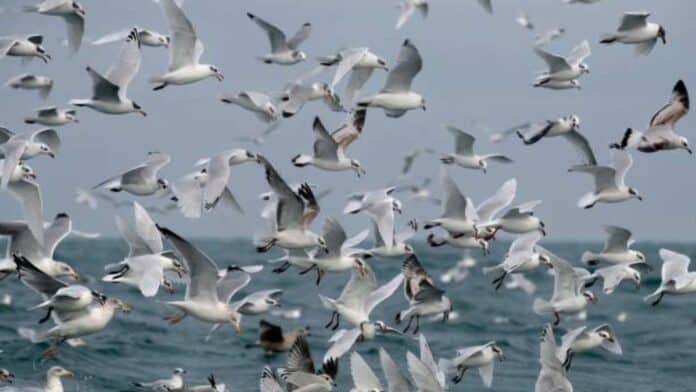There are fears that Gloucester city could see bird flu outbreak due to rise in Gloucester’s gull population.
Richard Cook, the Council Leader of Gloucester City said, the gull’s population will grow “inexorably” in the spring. Once, the breeding season of gull’s will start in May, they will become “more aggressive” towards people.
According to Gloucester’s City Law, the Council can no longer cull the gulls to control their population. In 2019, the gull’s population in the city was around 6,000. Later in 2020, when the Council members were allowed to use methods to keep the gull’s population in count, they used to put oil on the gull’s eggs to prevent them for hatching.
According to the Local Democracy Reporting Service, “the council has not been able to carry out any surveys after the changes were introduced”.
The Council Leader, Mr. Cook said, “we’re allowing that population to inexorably increase because we can’t take the eggs away”. “We can’t oil the eggs to prevent them from hatching, so we’re just creating a problem for ourselves in the future”, said the Council Leader. “We’ve spent so many years trying to control the population that we’ve just wasted all that money because we’ve not been able to keep up that programme”, said the Mr Cook. He further added, “They know they are safe on rooftops and can breed safely up there due to lack of predators”.
Mr Cook warned the population of gulls would rise and lead to a greater risk of bird flu which will pass to humans. In England, 234 cases of high pathogenic bird flu were recorded on 9 November, 2022.
Humans can get contaminated from bird flu through direct contact with infected animals or exposure to contaminated environments. Human – to – Human transmissions of bird flu are very rare at present. Researchers have warned that some strains can mutate and become transmissible among humans.
Risk of bird flu for humans was currently very low, said the UK Health and Security Agency. But Mr Cook, the Council Leader said he believed a large population increase of gull’s in Gloucester City was an unnecessary risk, given the recent outbreaks of avian flu within the bird population across the Uk.

